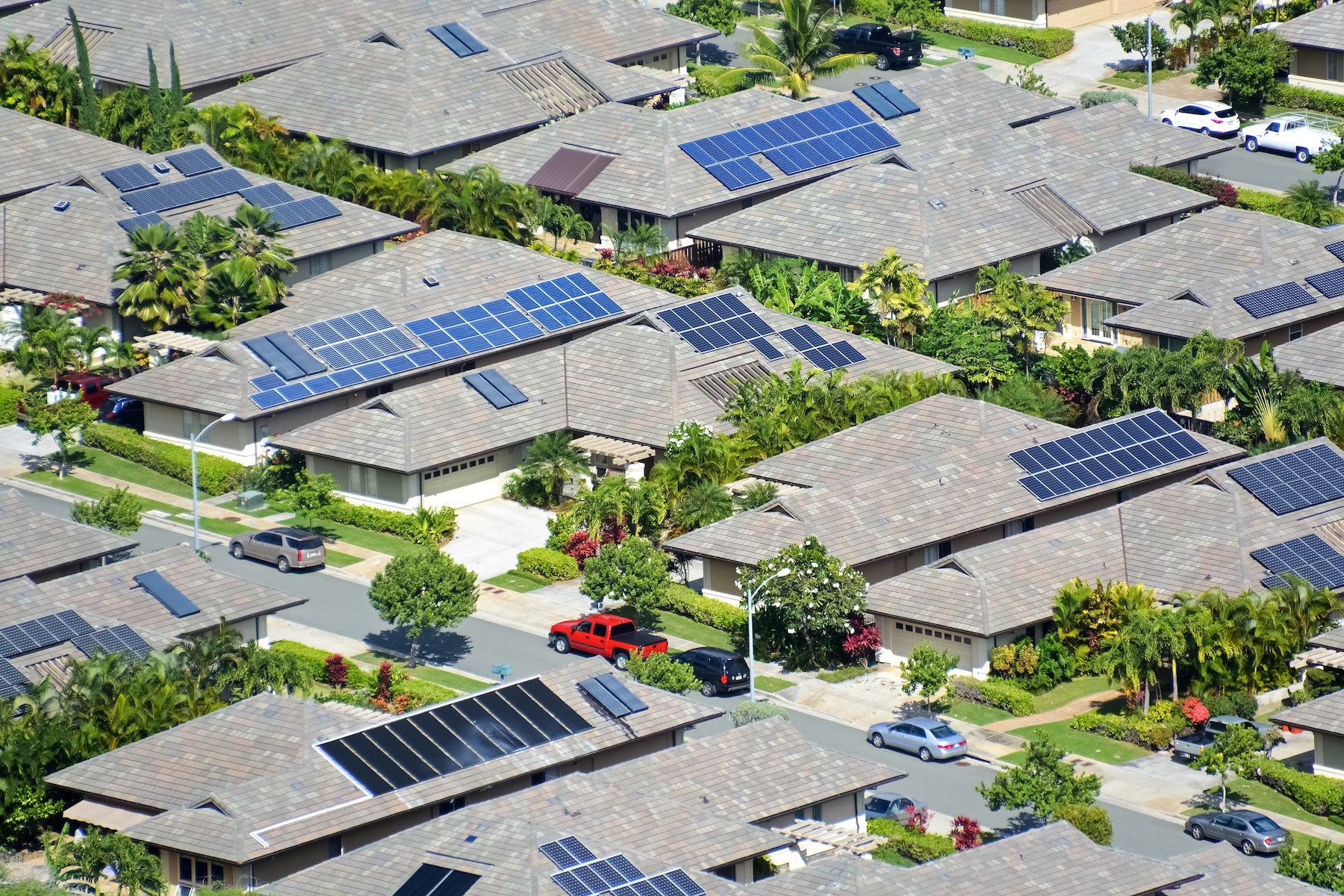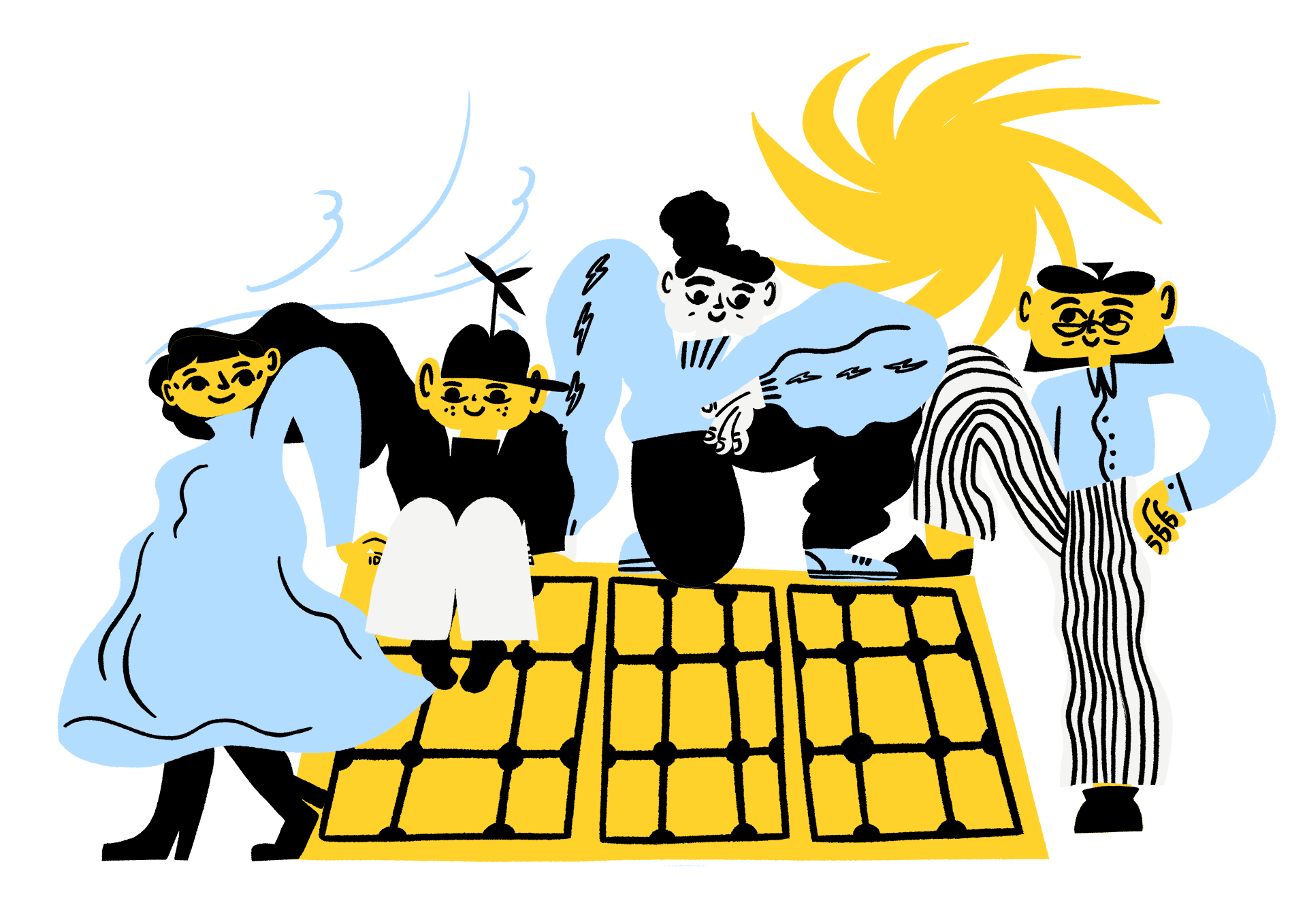Who is engaging in the energy transition and what impact do they have? Here are the six types of energy citizens within the energy transition.
Energy citizenship manifests itself in multiple behaviours that citizens carry out daily. The impact of these behaviours on the energy transition can either be positive (e.g., supporting the clean energy transition, investing in energy-efficient appliances or participating in a local energy initiative), negative (e.g., public resistance to new forms of renewable energy) or neutral.
However, to induce (preferably positive) actions in energy citizens, an understanding of energy citizens, their behaviour and the reasons behind their behaviour is necessary. Within the Green Energy Transition Actions (GRETA) research project, six types of energy citizens were identified based on their involvement in the energy system. Each type of energy citizen has different rationales and contextual determinants that affect their engagement in the energy transition.
We distinguish between energy citizens that act as individuals (i.e., consumers, prosumers and prosumagers, participants in protests and movements, and policy-makers) and as collective entities (i.e., business entities and energy communities). That said, one person can belong to different types of energy citizens since their behaviours overlap in some cases.
Based on this, we argue that policies and policy frameworks should account for differences between types of energy citizens.
Energy citizens acting as individuals
Consumer
Consumers are not merely end-users who are intended to use a product or service but also people who support and/or maintain the products. Based on the literature, there are three behaviours of consumers within the energy system:
(1) Investments, which means actions involved in the purchase of new equipment, for example, LED lighting, an energy-efficient laundry machine, a heat pump, or solar panels.
(2) Maintenance, which means actions involved in the repair, maintenance and improvement of energy-consuming equipment, including the building.
(3) Usage, which means the usage of buildings and equipment therein installed, including: energy consumption at home or at work, space heating and air conditioning as well as common appliances, lighting and other energy use; personal transportation methods, such as public transportation, shared bicycles, and cars as well as alternative fuel vehicles and (holiday) travel; and recycling.
Prosumer and Prosumager
Prosumers are individuals who both consume and generate energy. They can provide flexibility by optimising the timing of their electricity production and consumption, and by making decentralised storage available. There are varying degrees of “active” and “passive” prosumerism. Active prosumers are self-driven in the adoption of energy generation of technologies and passive prosumers are externally influenced or their adoption of general technologies is a by-product of other decisions. A sub-type of prosumerism is the so-called prosumager. This type of energy citizen not only consumes and produces energy but also stores electricity.
Participant in protests and movements
Participants in protests and movements take part in the energy system by being either for or against the energy transition. Behaviours of participants in protests and movements are for example being politically engaged by voting and getting active in a party, being active by attending demonstrations, writing to politicians and/or getting active in an organisation. Popular movements that raise awareness for climate change are the Extinction Rebellion (XR, founded in 2018) and Fridays for Future, which was initiated by Greta Thunberg in 2018. The NIMBY (not in my backyard) movement on the other hand is a movement of resistance, in which people voice their concerns and doubts about certain actions, such as the placement of wind turbines nearby houses.
Policy-maker
From the outset, policy-makers take on a double role in the energy system. On the one hand, policy-makers are representatives of the preferences of the institution, and on the other hand, they are individuals who are subject to internal and external pressures and demands. As a representative in a government or political party, policy-makers decide on new courses of action or sets of regulations adopted by the government, businesses, or other institutions designed to influence and determine decisions or procedures (i.e., policies). Other behaviours of policy-makers are deciding on subsidies, promoting change and investments, and regulating of innovations.
Energy citizens acting as collective entities
Business entity
Business entities can be legal entities. There are three general forms of legal entities through which business can be conducted: (1) sole proprietorship, (2) corporation, and (3) partnership. Although the energy transition in business entities is a major topic of research and policy, the behavioural perspective has been neglected. The main two behaviours of business entities, we found literature about, are energy investments and the adoption of new energy-efficient technologies.
Energy community
Energy communities are groups of energy consumers that share a common interest and/or attitudes in services provided (e.g., activities of generation, storage, consumption and sale of energy) and are often legal entities. Indeed, energy communities have been included in the EU energy legislation. Specifically, the term energy community is used in the context of
(1) “Citizen energy community” (CEC)
(2) “Renewable energy community” (REC)
Both types of energy communities are entities that are set up as legal persons, they must be controlled by their shareholders or members and their primary goal is to provide environmental and social community benefits rather than financial ones. Differences between those types of energy communities are connected to membership which is more regulated in RECs than in CECs.
Within GRETA, the term energy communities is used as an umbrella term, including:
(1) local energy communities (LECs), which are groups of energy consumers or prosumers that live within specific geographic boundaries;
(2) virtual energy communities, which are groups that do not live in a geographically bounded area, but are grouped according to certain criteria (e.g., communities of people willing to purchase green energy, i.e., green cooperatives);
(3) local energy initiatives (LEIs), which are decentralised, non-governmental initiatives of local communities and citizens to promote the production and consumption of renewable energy;
(4) community renewable energy/energy renewable community/community energy (CE), which describes social groups at the local level that generate and distribute renewable energy;
(5) prosumer collectives, which are social groups that consist of prosumers only.
Energy communities have several activities that differentiate them from the individuals in the energy system, such as community services, joint purchase, and collective ownership, energy supply, exchange and selling, implicit demand response, explicit demand-side flexibility, or cross-domain services.
Policies should account for differences between types of energy citizens
It is crucial that policy-makers acknowledge that there are different rationales across different types of energy citizens. Therefore, within GRETA we argue, that policy analyses and design should take into account individual and collective actions as well as the drivers and barriers behind those actions.
Luise Schlindwein and Carlos Montalvo work as scientist innovators at TNO. In GRETA, Schlindwein, Montalvo and their colleagues from TNO are leading the creation of the energy citizenship framework.

